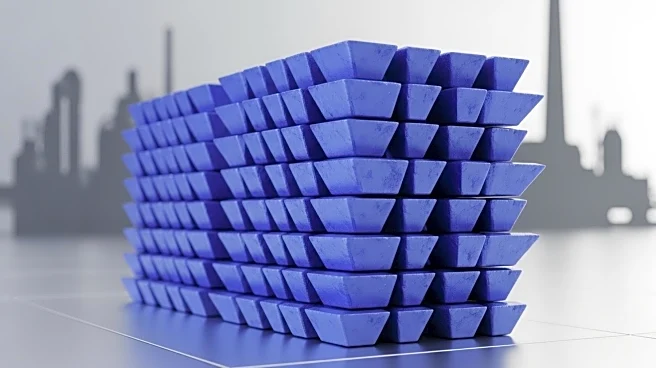What's Happening?
The Democratic Republic of Congo's mining regulator, ARECOMS, announced that it will revoke cobalt export quotas from companies failing to export allocated volumes, breaching environmental or tax rules, or transferring quotas to third parties. This new regulation, effective October 16, marks Congo's aggressive move to control the critical battery metal market. The top beneficiaries of the new quota regime are China's CMOC and Glencore, securing significant allocations for the fourth quarter of 2025.
Why It's Important?
Congo's decision to enforce strict compliance with cobalt export quotas is significant for the global electric vehicle industry, which relies heavily on cobalt for battery production. The 'use-it-or-lose-it' policy could disrupt supply chains if major producers fail to comply, potentially affecting production costs and availability of electric vehicles. This move also highlights Congo's strategic position in the global cobalt market and its influence on international trade dynamics.
What's Next?
Companies involved in cobalt production may need to adjust their operations to meet Congo's compliance requirements, potentially leading to increased costs or operational changes. The global electric vehicle industry may face supply chain challenges, prompting manufacturers to seek alternative sources or materials. Additionally, international stakeholders may engage in diplomatic discussions to address the implications of Congo's regulatory changes.
Beyond the Headlines
The environmental and ethical implications of Congo's cobalt production practices may come under scrutiny, particularly concerning labor conditions and sustainability. Long-term shifts in global supply chain strategies could emerge as companies seek to mitigate risks associated with reliance on Congolese cobalt.









